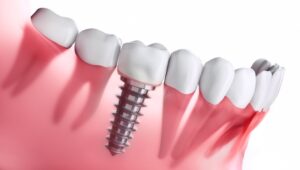It’s interesting how easy it is to overlook our gums when we think about oral health. A lot of us focus on teeth, worrying about cavities or how white they are. Yet, our gums play a vital role in our dental health. Gum disease, if left untreated, can lead to serious health problems. That’s why catching it early and getting the right treatment is so important.
What Exactly is Gum Disease?
Gum disease, also known as periodontal disease, is an infection of the tissues that hold our teeth in place. It is mainly caused by bacteria in plaque, a sticky film that forms on our teeth over time. When we don’t remove plaque through regular brushing and flossing, the gums can become inflamed.
Stages of Gum Disease
-
Gingivitis: This initial stage is characterized by red and swollen gums that may bleed easily. With proper oral hygiene and professional dental cleaning, gingivitis is often reversible.
-
Periodontitis: If gingivitis is not treated, it can advance to periodontitis. Here, the gum pulls away from the tooth, forming pockets that become infected. At this point, it’s harder to reverse the damage, but treatment is critical to prevent further issues.
Why Early Intervention is Key
Tackling gum disease early on can make a huge difference. Addressing the problem at its root can prevent it from escalating to more severe stages. Not only does this save us from potential discomfort, but it also helps us avoid costly dental procedures in the long run.
Preventing Tooth Loss
If gum disease progresses unchecked, it can damage the bone that supports the teeth, leading to tooth loss. That’s why spotting it early on and seeking treatment is crucial in keeping our smile intact.
Benefits of Seeking Help Promptly
By acting swiftly, we can maintain our oral health and ensure that our overall well-being remains top-notch. Here’s why addressing gum disease sooner rather than later is beneficial:
-
Reduce healthcare costs by avoiding extensive treatments
-
Maintain a healthier mouth and fresher breath
-
Decrease the risk of secondary infections or complications
Complications You Can Avoid
Delaying treatment can lead to complications such as abscesses, bone loss, and even heart disease. The bacteria from gum infections can travel through the bloodstream, affecting other parts of the body.
How to Spot Early Signs of Gum Disease
We often notice the signs only when they’re hard to ignore. Yet, catching gum disease in its infancy can be pivotal. Watch out for symptoms like gum tenderness, persistent bad breath, and gums that bleed when you brush. These can all indicate the onset of gum disease.
Regular Dental Check-Ups
Scheduling regular visits to your dentist is one of the best preventive measures. They can spot the early signs of gum disease even before we notice them ourselves.
Early Intervention Can Include Simple Steps
Sometimes, simple lifestyle changes are all it takes to nip gum disease in the bud. Eating a balanced diet, maintaining oral hygiene, and avoiding tobacco can all contribute to healthier gums.
What Happens if We Ignore The Signs?
Ignoring the early signs of gum disease can lead to more serious oral health problems. Advanced stages often mean more invasive and costly treatments.
Professional Treatments
In advanced cases, you might need to consider options such as deep cleaning, surgery, or even tooth extractions services in Saskatoon. These procedures can be uncomfortable and expensive, emphasizing the need for early diagnosis and treatment.
Why Gum Health Affects More Than Just Your Teeth
Our gums are the foundation of our mouths, and their health is closely linked to our body’s overall health. It’s fascinating to think about how something like gum disease could be connected to heart disease, diabetes, and other systemic issues.
The Mouth-Body Connection
Research suggests that inflammation from gum disease might trigger inflammation in other parts of the body. Thus, managing gum disease can prevent complications elsewhere. By ensuring gum health, you’re investing in your body’s overall wellness.
Practical Tips for Healthier Gums
To keep our gums in tip-top shape, a few simple routine habits can make all the difference:
-
Brush twice a day with fluoride toothpaste
-
Floss daily to remove plaque between teeth
-
Rinse with an antibacterial mouthwash
-
Use a soft-bristled toothbrush to prevent gum damage
Implementing these practices consistently can significantly reduce the risk of gum disease.
Family Support in Oral Health
If you live with family, encourage each other to maintain effective oral routines. Visiting a professional family dentist in Saskatoon at Wheatland Dental can help catch any issues early with regular check-ups and cleanings.
When to Seek Professional Help
Sometimes, despite our best efforts, professional help may be necessary. If you notice persistent symptoms that don’t improve with regular care, it’s time to consult a specialist for comprehensive treatment.
Spotlight on Modern Treatment Solutions
Thanks to advancements in dental technology, tackling gum disease today is more effective than ever. Modern techniques include laser treatments, minimally invasive surgeries, and new medications that target infection at its source.
The Role of Dentists in Managing Gum Disease
Regular trips to a dentist, perhaps to view Wheatland Dental Saskatoon facilities, can provide a clear path to maintaining ideal gum health. They offer the latest in diagnostic tools and personalized care plans tailored to your needs.
Final Thoughts
By addressing gum disease early, we safeguard our teeth and look after our overall health. With proactive care, simple lifestyle choices, and regular dental visits, we can keep our smiles bright and healthy. So, why wait for things to get serious when it comes to gum health? Start today and make a difference to your future self.




